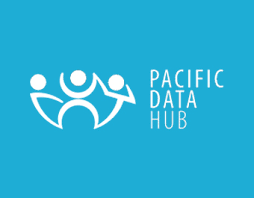Questionnaire
The Tongan NCD Risk Factors STEPS survey was a nation wide cross sectional assessment of 18 to 64 year olds carried out in from 12th of March to the 5th of May 2017 using WHO STEPS surveillance methodology and instruments.
Purpose
The WHO STEPwise approach to noncommunicable disease (NCD) risk factor surveillance is designed to help countries build and strengthen their surveillance capacity. STEPS is the WHO's recommended tool for surveillance of NCDs and their risk factors. It provides an entry point for low and middle income countries to get started on NCD surveillance activities. It is also designed to help countries build and strengthen their capacity to conduct surveillance.
The key objectives of the 2017 STEPS survey were to:
• To investigate and document the prevalence of key NCDs in Tonga.
• To determine the prevalence of and better understand the major risk factors and their associations for common NCDs in Tonga.
document the prevalence and magnitude of major modifiable risk factors for NCDs, including tobacco use, alcohol consumption, fruit and vegetable consumption, physical activity, overweight and obesity, blood pressure, blood glucose and cholesterol levels.
• To document the prevalence of key NCDs among adults in Tonga.
• To monitor trends in major NCD risk factors and key NCDs across age groups and gender.
Common, preventable risk factors underly most NCDs. The leading risk factor globally is raised blood pressure, followed by tobacco use. Other major risk factors, accounting for a large fraction of the global mortality and morbidity from NCDs include alcohol use, unhealthy diet (such as low fruit and vegetable intake, or high salt intake), insufficient physical activity, overweight/obesity, raised blood glucose, and raised cholesterol.STEPS is a sequential process. It starts with gathering key information on risk factors with a questionnaire, then moves to simple physical measurements and then to more complex collection of urine and blood samples for biochemical analysis. STEPS emphasizes that small amounts of good quality data are more valuable than large amounts of poor data.
v01: edited data of the Master file (labelled and cleaned). This is not the final dataset. Therefore, all observations were removed from the dataset due to sensitivity of the data and for not being the final version.
INDIVIDUAL: Socio demographic and behavioural information (tobacco use, alcohol consumption, diet and physical activity); Tobacco use; Alcohol consumption; Low intake of fruit and vegetables; Diet high in salt; Physical inactivity; Physical measurements such as height, weight and blood pressure; Obesity; Raised fasting blood glucose; High levels of fat in the blood; Medical history; Cervical cancer screening; Biochemical measurements were collected to assess salt intake, blood glucose and cholesterol; Health care; Access to services.
* Collection start: 2017
* Collection end: 2017
Data and Resource
| Field | Value |
|---|---|
| Publisher | Pacific Data Hub |
| Modified | 29 November 2022 |
| Release Date | 12 April 2019 |
| Source URL | https://pacificdata.org/data/dataset/b8b4e333-a86d-4e38-81ca-529cefd19ced |
| Identifier | b8b4e333-a86d-4e38-81ca-529cefd19ced |
| Spatial / Geographical Coverage Location | Array |
| Relevant Countries | Tonga |
| License |
Public
![[Open Data]](https://assets.okfn.org/images/ok_buttons/od_80x15_blue.png)
|
| Author | Array |
